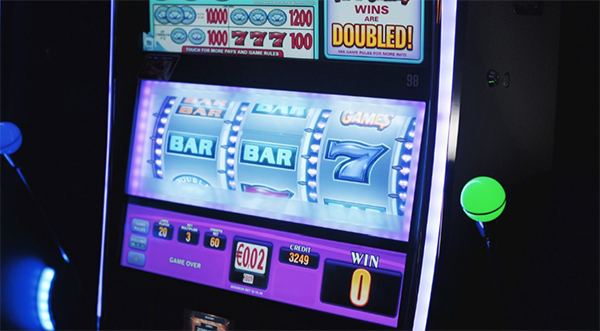The History and Legality of Online Gambling in the US
By Space Coast Daily // November 20, 2024

The US is a destination that services millions of gamblers from all over the world on a daily basis. Data from Statista shows that the US gambling market is worth $37.18 billion in 2024 and is projected to grow at a CAGR (that’s compound annual growth rate) of 9.45% between 2024 and 2029, with a staggering 50.3 million players.
Gambling has come a long way in the US, from being a form of leisure entertainment to a whopping global industry impacting the economy in a variety of ways.
The Evolution of Online Gambling
The early days of online gambling in the US relate to the boom in the tech sector, especially the launch, and advances in new Internet technology. As the first Internet service providers brought regions and countries together, other companies saw the potential of having millions of people connected digitally and exchanging information in real time with one another and with computers. The World Wide Web launched in the public domain in 1993 and brought gambling directly to people who had bought their first computers and connected to the Internet. Pioneer websites emerged, launching online casinos with poker and blackjack options as some of the first games offered.
MicroGaming, the casino software company, launched the first-ever casino (the Gaming Club Casino), which marked the take-off for online gambling in the US and globally. The 1990s and early 2000s saw many other companies launch casinos, which became popular for several reasons. First, many gamblers realized they no longer had to travel to the bright lights of Las Vegas and could get a similar gambling (without the added glitz and glam) casino experience from their computers in the comfort of their own home.
2003 to 2006 also saw a massive increase in online casino players as they found thrilling versions of classic casino games, such as Texas Hold’Em, and tournaments with huge jackpots and rewards. The widespread adoption of mobile smartphones in 2010 launched a new era where gamblers could access online casinos and play on the go; not being tied to a desktop computer or laptop gave a whole new level of accessibility to the gaming world.
The online casino revolution has been challenging over the years. Outright bans, strict regulations, and negative perceptions have often posed challenges, but the industry has weathered every storm to become globally inclusive and to continue its widespread growth.
Key Gambling Legislation
Two key pieces of gambling legislation stand out in the history of online casinos in the US—The Wire Act of 1961 and The Unlawful Internet Gambling Enforcement Act (UIGEA) of 2006.
- The Wire Act of 1961—the Wire Act was one of the first results of legislative moves to regulate gambling across the US. The Wire Act initially targeted organized crime, but it also included interstate gambling on sports events and information transfer. This confused players and casino/bet operators, who interpreted the law as a blanket ban on online gambling.
- The Unlawful Internet Gambling Enforcement Act (UIGEA) of 2006—in 2006, the US Congress passed the UIGEA, which targeted illegal gambling and related financial transactions. The UIGEA specifically made it illegal for financial services providers, such as banks and payment processors, to facilitate transactions for illegal gambling activities. Although this law did not prohibit online gambling, it stifled players and operators due to the uncertainty around their legal standing.
-
- States legalize online poker—Nevada became the first state to legalize online betting in 2010, with Delaware and New Jersey following in 2013. These states have regulations for gambling operations, consumer protection, and fair play.
- The Professional and Amateur Sports Protection Act (PASPA)—PASPA was signed into law in 1992 and took effect in January 1993. This law stopped new states from offering sports betting but did not outlaw sports betting. However, in 2018, the US Supreme Court struck down PASPA, allowing each state to determine and establish regulations for sports betting.
- Responsible gambling—US gambling regulations require casino operators to implement responsible gambling measures, including age limits, employee training, self-exclusion programs, time limits, loss limits, and access to information and resources (like hotlines and websites for gambling problem support).
Current Legal Landscape
Several states embraced online casinos, establishing regulatory frameworks and receiving significant revenue from the industry. The US is unique as federal regulations influence casino operations, but states have regulatory oversight, especially for gambling taxes and identification requirements. Legalizing and regulating online gambling in the US has brought economic benefits to states, such as increased tax revenue funds for public infrastructure, education, and public services. The gambling industry also contributes to employment, supporting thousands of jobs and some of the highest published employment and wages for gambling workers.
Federal Gambling Regulations
Gambling is legal in the US, but there are significant restrictions on online, interstate, and offshore gambling. The US Department of Justice (DOJ) enforces federal gambling laws, while the Federal Trade Commission (FTC) protects consumers from unfair and deceptive gambling operators and practices. The Internal Revenue Service (IRS) is responsible for taxes on gambling winnings and for enforcing tax laws related to gambling companies.
States Gambling Regulations
Online gaming is only legal in seven US States—New Jersey, Delaware, Pennsylvania, Michigan, Rhode Island, and Connecticut. Michigan became the latest state to legalize online gambling in 2021. Thirty US States, including Nevada, Arizona, Arkansas, Colorado, Florida, and Illinois, allow some form of online sports betting.
The impact of federal and state regulations has reached far; regulations have increased consumer protection and financial regulatory compliance from operators and players. The gambling industry upholds a standard for fairness and innovation to serve modern players in the digital age. Online gambling regulations have also led to the establishment of social casinos, which offer the experience of online casinos but do not involve real money betting.
Future Trends in Gambling
Technological advances, e.g. mobile gaming, virtual reality (VR), cryptocurrency payments, and, most recently, blockchain-based gambling platforms, are changing how gamblers interact with online platforms. Mobile gaming is rising, with more players preferring to access their favorite casino games via smartphones and tablets for a more flexible and relaxed experience. Online casino operators and game developers must keep up with dynamic players’ preferences to keep up.
Future legal frameworks will address the adoption of technologies that impact key regulatory requirements. For instance, blockchain-based gambling will allow players to bypass KYC requirements, which regulatory authorities may not be comfortable with. More states may also allow online gambling as they seek to benefit from gambling revenues. Players can expect a more uniform approach to gambling across state lines, and also shifting attitudes and public opinion surrounding gambling.












